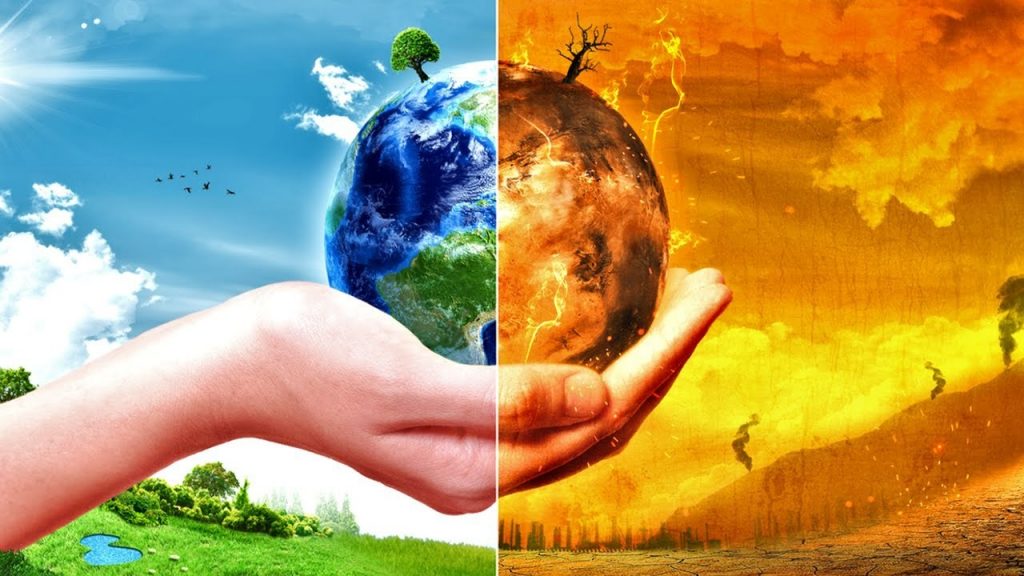
We see clearly what is near to us
There is a remarkable contrast in the way that governments around the world have responded to the COVID-19 pandemic and the way that they have responded to the climate emergency. The pandemic, which indeed represents an extremely grave danger to humanity, has produced a masive global response. Borders have been closed, airlines have become virtually inoperative, industries, restaurants and entertainments have been closed, sporting events have been cancelled or postponed, people have been asked to stay at home and practice social distancing, and the everyday life of citizens around the world has been drastically changed.
By contrast, let us consider the threat that if immediate action is not taken to halt the extraction and use of fossil fuels, irreversible feedback loops will be initiated which will make catastrophic climate change inevitable despite human any human efforts to prevent it. This threat is even more serious than the COVID-19 pandemic. Climate change could make much of the earth to hot for human life. It could produce a famine involving billions of people, rather than millions. My own belief is that catastrophic climate change would not lead do the extinction of the human species; but I think that because much of the world would become uninhabitable, the global population of humans would be very much reduced.
How have governments responded to the climate emergency? A minority, for example the Scandinavian countries, have taken appropriate action. Most governments pay lip service to the emergency, but do not take effective action; and a few countries, such as the United States under Donald Trump, Bolsonaro’s Brazil, and Saudi Arabia, deny that there is a climate emergency and actively sabotage action. The world’s net response has been totally inadequate. The Keeling curve, which measures CO2 concentrations in the atmosphere, continuse to rise, and the rate of rise is even increasing.
What is the reason for this remarkable contrast in our response to two serious emergencies? We see clearly and respond to what is close to us, and are relatively indifferent to what is far away. We hear of people dying every day from the COVID-19 pandemic, and there is a danger that as many as 100 million people could die before it is over. By contrast, although immediate climate action is needed today to avoid disaster, the worst consequences of climate change lie in the long-term future. Old people, like me, will not live to see massive deaths from starvation and overheating. However, we have a responsibility to our children and grandchildren, and to all future generations. A large-scale global famine could occur by the middle of the present century, and children who are alive today could experience it.
Recovery from the pandemic offers climate action opportunities
When the COVID-19 pandemic is over, governments will be faced by the task of repairing the enorouus economic damage that it has caused. The situation will be similar to the crisis that faced US President Franklin D. Roosevelt when he took office during the Great Depression of the 1930’s. Roosevelt, encouraged by John Maynard Keynes, used federal funds to build much-needed infrastructure around the United States. His programs, the New Deal, ended the Great Depression in his country.
Today, the concept of a similar Green New Deal is being put forward globally. This concept visualizes government-sponsored programs aimed at simultaneously creating both jobs and urgently-needed renewable energy infrastructure. The Green New Deal programs could be administered in such a way as to correct social injustices.
A sustainable economic system
Economists, with a few notable exceptions such as Nicholas Georgescu-Roegen, Aurelio Peccei and Herman Daly, have a cynical tendency to confine their discussions to the short-term future. With self-imposed myopia, they refuse to look more than a few decades into the future. This allows them to worship growth, and to advocate perpetual growth. Of course, they realize that perpetual growth of anything physical on a finite planet is a logical impossibility. They realize that present growth implies future collapse. But before that collapse happens, they plan to sell their stocks and bonds and buy large estates to which they can retire.
Our present financial system is unsustainable, and it works for the interests of a few very rich people. For the sake of the long-term future, we must build a sustainable, steady-state economic system, an economic system which reduces inequality, and which serves the broad public interest.
John Scales Avery is a theoretical chemist at the University of Copenhagen. He is noted for his books and research publications in quantum chemistry, thermodynamics, evolution, and history of science. His 2003 book Information Theory and Evolution set forth the view that the phenomenon of life, including its origin, evolution, as well as human cultural evolution, has its background situated in the fields of thermodynamics, statistical mechanics, and information theory. Since 1990 he has been the Chairman of the Danish National Group of Pugwash Conferences on Science and World Affairs. Between 2004 and 2015 he also served as Chairman of the Danish Peace Academy. He founded the Journal of Bioenergetics and Biomembranes, and was for many years its Managing Editor. He also served as Technical Advisor to the World Health Organization, Regional Office for Europe (19881997). http://www.fredsakademiet.dk/ordbog/aord/a220.htm. He can be reached at [email protected]. To know more about his works visit this link. http://eacpe.org/about-john-scales-avery/
SIGN UP FOR COUNTERCURRENTS DAILY NEWS LETTER









































